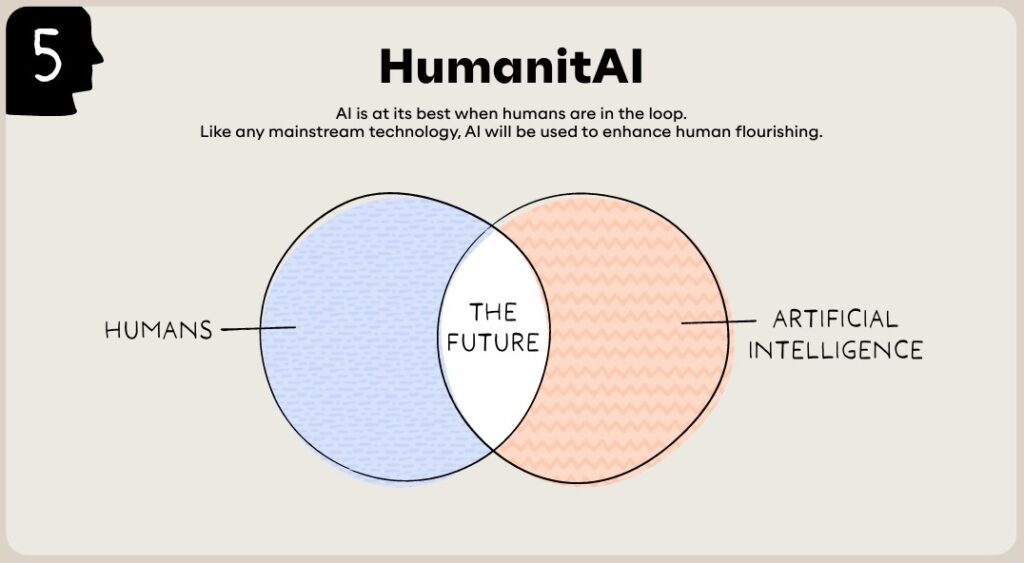
A Conversation about ChatGPT
Over the holiday period, a plethora of articles emerged about the OpenAI tool ChatGPT. Artificial Intelligence (AI) tools that generate human responses to open text-based inputs have been around for almost five years. What was particularly impressive about ChatGPT was the speed and accuracy of the responses it could generate in a seemingly human way.
As you can imagine in the education community, there were a range of responses from opinion pieces ‘This is the End of High School English [1]’, to New South Wales and Queensland Public Schools banning its use [2], to numerous articles imploring educators to embrace this technology and think carefully about how AI tools can be utilised for learning. McCrindle Research even identified AI in its trends of 2023 as a theme for enhanced human flourishing. An additional challenge for educators has been the terms and conditions of products such as ChatGPT which require users accept they are over 18 years of age before using it. A challenge for those of us that are educating students primarily younger than this age.
Educators are experts in teaching students how to learn, and learning is a consequence of thinking. Throughout education, there have been a range of technological tools and advancements that have assisted students with various tasks but still require a fundamental knowledge base. Take for instance calculators and spellcheckers. Calculators have not ended the need for knowledge of fundamental skills in Mathematics, in fact, the need to be able to input the correct instructions and spot potential problems with the output is a key skill students require despite calculations that are made by this technology. Similarly, the use of spellcheckers has not made the fundamental skill of spelling redundant. It is a tool that assists students, but ultimately the fundamental knowledge and skill is still required. Professor Matt Bower, Interim Dean of Macquarie University’s School of Education expresses this well when he says, “We still need humans to learn and know fundamental knowledge and skills – without that, how will humans be able to spot problems with AI outputs, or work creatively with AI?”
One immediate change we have made as a result of AI availability at Shore has been in the design of our assessment tasks in the Senior School. These tasks are designed to assess a students’ own learning. In creating tasks, we want to ensure students do not have the ability to undertake and submit tasks with work that is not their own and generated by others. This has always been a consideration and concern with the availability of external tutors but also the increase in availability of information on the internet. AI has simply provided another avenue where this is possible and accessible. In designing authentic tasks, we are seeking to assess students own learning where they have the ability to demonstrate the applications of the knowledge they have learned. We have also updated our Academic Integrity Policy with guidelines around AI and specifically ChatGPT. The fundamental philosophy of the policy has not changed. Whatever a student submits, this must be their own work created authentically by them.
Both now and into the future, fundamental knowledge with critical and creative thinking is required to imagine and examine what is created, be it by ChatGPT or other AI technologies of the future. For over 130 years, Shore have been equipping boys with these skills as learners to navigate the world irrespective of technological advances. The ability to learn and think is a timeless human skill. Learning, in the holistic sense at Shore, is far more than academic head knowledge or skills. All of this does not even mention or consider the significant ethical, philosophical and theological questions that these tools raise. I recently enjoyed reading the musings of former Shore teacher Mr Simon Smart on this very topic [3]. As these tools develop and become even more sophisticated, we will continue to ask ourselves as educators what are the benefits for learning to our students, and what are the potential costs and pitfalls. It is imperative we strike the right balance between using technology to assist learning and ensuring our students have fundamental skills and knowledge required as they venture out into the world.

Mr M Leeds
Deputy Head Academic
[1] https://www.theatlantic.com/technology/archive/2022/12/openai-chatgpt-writing-high-school-english-essay/672412/
[2] https://www.theguardian.com/australia-news/2023/jan/23/queensland-public-schools-to-join-nsw-in-banning-students-from-chatgpt
[3] https://www.eurekastreet.com.au/article/chatgpt-and-the-apocalypse
